After Arachne beat Athena at a weaving contest, the goddess punished the mortal girl by turning her into a spider and forcing her to weave for all eternity.
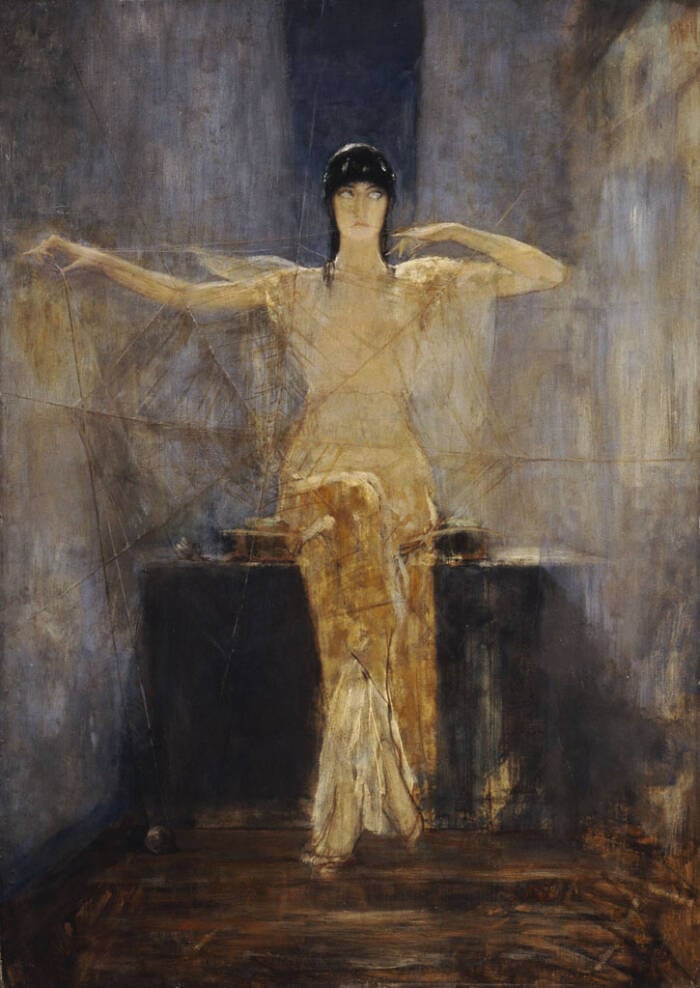
National Gallery, AthensArachne, so confident in her talent that she challenged the gods, suffered a terrible punishment for her actions.
Where did spiders come from? According to ancient Greek mythology, the answer can be traced to a competition between a talented weaver named Arachne and the powerful goddess Athena.
Arachne, the greatest weaver in the ancient world, had dared to claim that her skills outstripped the gods themselves. Athena, goddess of crafts and weaving, admitted that Arachne’s talents surpassed her own – but then punished the weaver for her hubris by turning her into a spider.
Did Arachne deserve her punishment? Or was her story a subtle way to critique those in power?
The Greatest Weaver in The Ancient World
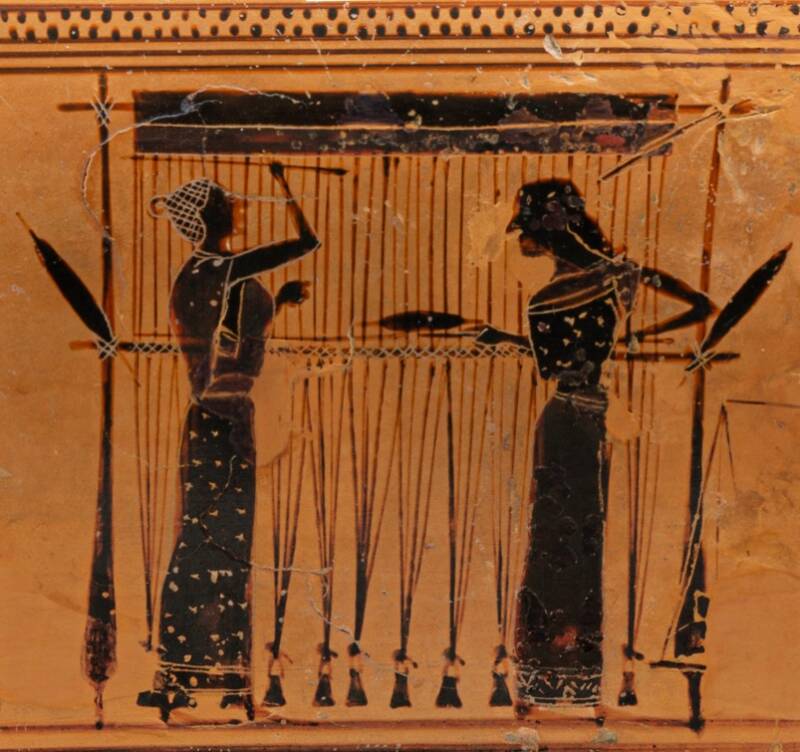
Metropolitan Museum of ArtWeaving was a well-respected craft dominated by women in antiquity.
According to the myth of Arachne — which was primarily recorded by Ovid in Metamorphoses — Arachne came from humble beginnings. She grew up in Lydia (located in present-day Turkey) and was the daughter of a dye-merchant, a tradesman with no noble connections. Though Arachne grew up without any advantages, she became a master weaver.
Ovid wrote that Arachne pulled colored thread by instinct, weaving creations so magnificent that the nymphs left behind the rivers and mountains to watch her work. Every time the young weaver completed a tapestry, her wowed audience burst into rapturous applause.
She was so talented, in fact, that her ability seemed to be a gift from Athena, the goddess of wisdom, warfare, and crafts. But Arachne denied it. She not only claimed her gift was her own, but boasted that she would triumph over Athena in a weaving competition.
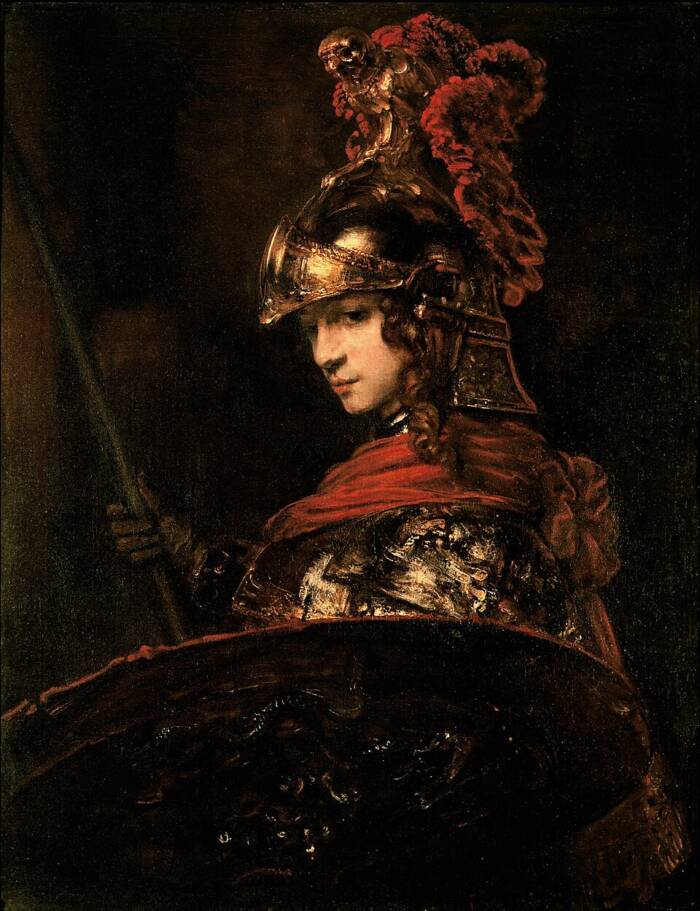
Public DomainPallas Athena painted in the 17th century by Rembrandt. Though primarily known as the goddess of war and wisdom, Athena was also a deity associated with crafts.
“Contend with me,” Arachne exclaimed, according to Ovid’s Metamorphoses. “I will not disagree at all if I am beaten.”
Offended by the mortal’s challenge, Athena disguised herself as an old woman and visited Arachne’s workshop. The goddess scolded Arachne and warned her to beg for Athena’s forgiveness.
“Not everything old age has is to be shunned,” Athena told Arachne. “Knowledge comes with advancing years.”
The goddess continued. “Do not reject my advice: seek great fame amongst mortals for your skill in weaving, but give way to the goddess, and ask her forgiveness, rash girl, with a humble voice: she will forgive if you will ask.”
Instead of accepting Athena’s advice and and asking for forgiveness, however, Arachne responded with irritation. She exclaimed: “Why does [Athena] not come herself? Why does she shirk the contest?”
At that moment, Athena revealed her true form and cried: “She is here!”
The Competition Between Athena And Arachne
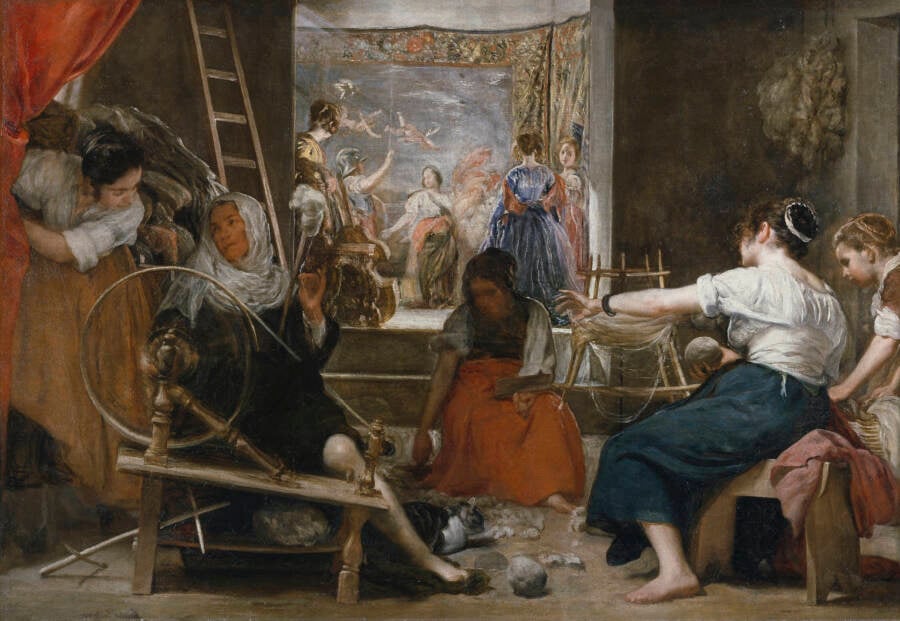
Museo del PradoWomen gathered to watch the competition between the goddess and the weaver.
Though the women and nymphs around Arachne immediately began to worship Athena, Ovid writes that Arachne held firm. The contest was on, and the mortal girl and the goddess began to weave.
Athena wove heroic tales of Greek gods and goddesses into her tapestry, placing herself in the center with a depiction of her triumph over Poisodon for the city of Athens. In the corners of her tapestry, Athena also included scenes of mortals who dared compare themselves to the gods, and the punishments they’d faced for their boldness.
Arachne, however, took a different approach. She wove the stories of women who’d been deceived by the gods, including Europa, Leda, Antiope, Danaë, and Alcmene. In her tapestry, the gods were brutish and violent.
Once the two tapestry were finished, Athena and Arachne stood back to examine their competitor’s work. But Athena quickly realized that she had been bested. Arachne’s tapestry had no faults.
Instead of accepting defeat, however, Athena punished the weaver.
How Athena Punished Arachne
According to Ovid, the first thing Athena did was destroy Arachne’s tapestry.
“The golden-haired warrior goddess was grieved by its success, and tore the tapestry, embroidered with the gods’ crimes,” Ovid wrote.
Then, she attacked Arachne by striking her on the head with a spindle
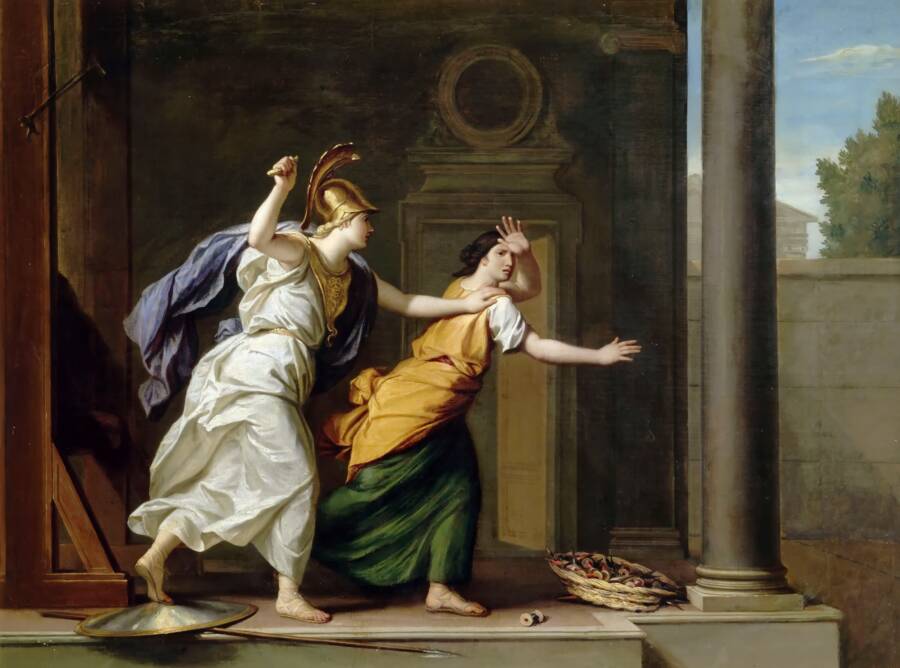
Public DomainEnraged at Arachne’s attack on the gods, Athena beat the weaver with a spindle.
To escape the goddess’s attack, Arachne fled the room with a rope, planning to end her life by hanging. (In antiquity, this was considered a noble way for a warrior to die, and Arachne seemingly chose suicide to avoid being killed by Athena.) But Athena stepped in to make sure Arachne’s punishment came from the gods.
Athena threw poison on Arachne — and transformed her into a spider.
“At the touch of this dark poison, Arachne’s hair fell out,” Ovid wrote. “With it went her nose and ears, her head shrank to the smallest size, and her whole body became tiny. Her slender fingers stuck to her sides as legs, the rest is a belly, from which she still spins a thread and, as a spider, weaves her ancient web.”
What’s more, Athena declared that all of Arachne’s descendants would also be spiders.
“Live on then, and yet hang, condemned one,” Athena proclaimed, “but, lest you are careless in future, this same condition is declared, in punishment, against your descendants, to the last generation!”
The Moral of The Myth Of Arachne
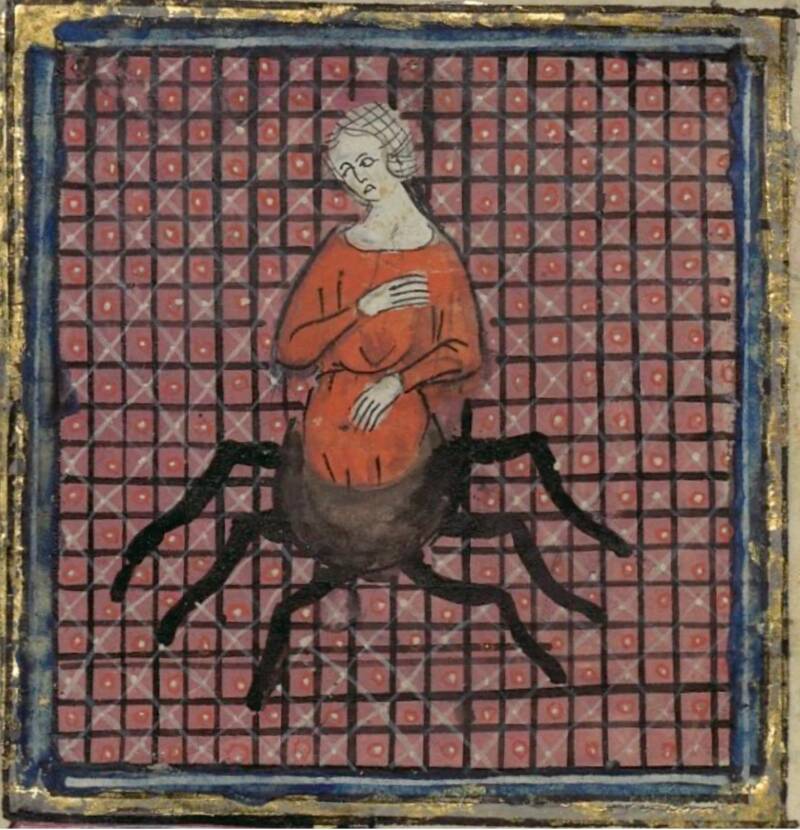
Wikimedia CommonsAs a punishment, Athena transformed Arachne into a spider and cursed all of her descendants to spin meaningless webs.
In antiquity, the moral of Arachne’s story was clear: do not challenge the gods. Arachne’s hubris and pride became her downfall. Not only that, her critique of the gods led to an even more extreme punishment. Athena ripped her tapestry into pieces, and, by turning Arachne into a spider, destroyed her ability to ever critique the gods again. Arachne was doomed to weave blank webs for the rest of time.
Did Arachne overstep her place in society by claiming she could weave better than the goddess of crafts? Or did Athena overstep with her harsh punishment? Ovid, who wrote the most complete telling of Arachne’s fate in Rome during the early 1st century C.E, left the question unanswered. But the Roman poet may have found himself sympathizing with the ancient weaver.
When Ovid wrote Metamorphoses, the emperor Augustus had declared a new golden age in Rome. But the golden age only extended to those who worshipped Augustus.
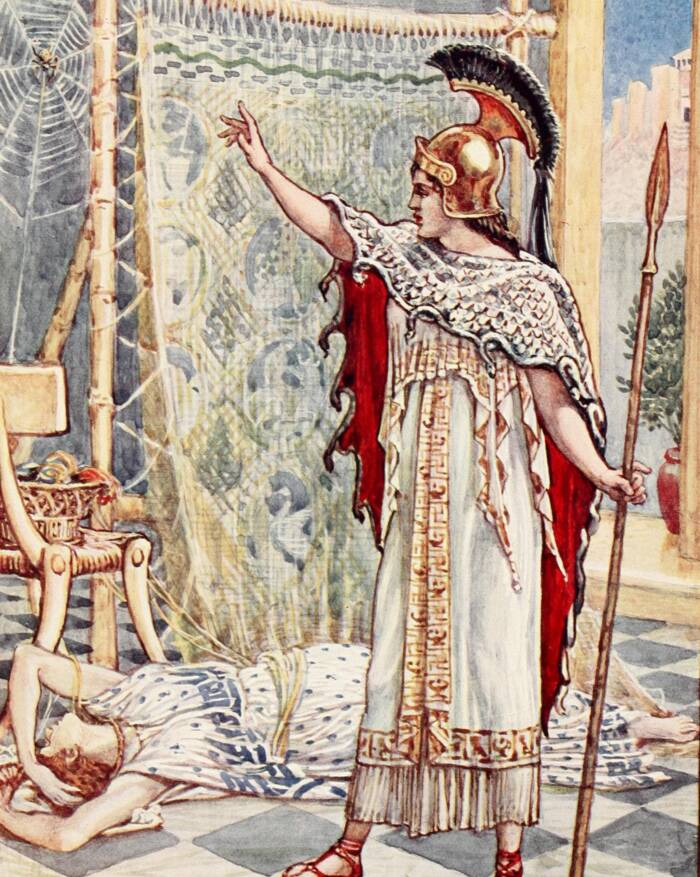
Wikimedia CommonsThe myth of Arachne has been interrupted in different ways over the centuries
Ovid found himself on the emperor’s bad side and suffered a terrible fate for a poet: he was exiled to the edges of the empire. Did Ovid see himself in Arachne, a generational talent censored by those in power? Someone who dared to speak out — and who was unfairly silenced?
Indeed, instead of a warning for the oppressed to stay in their place, Arachne’s story can be seen as a celebration of those who speak truth to power — regardless of the personal price they might pay.
Arachne was not the only mortal to find herself on the bad side of the Greek gods. Next, learn about 12 of the Greek gods, and then learn about the ancient curse tablets that Greeks used to attack their enemies.





